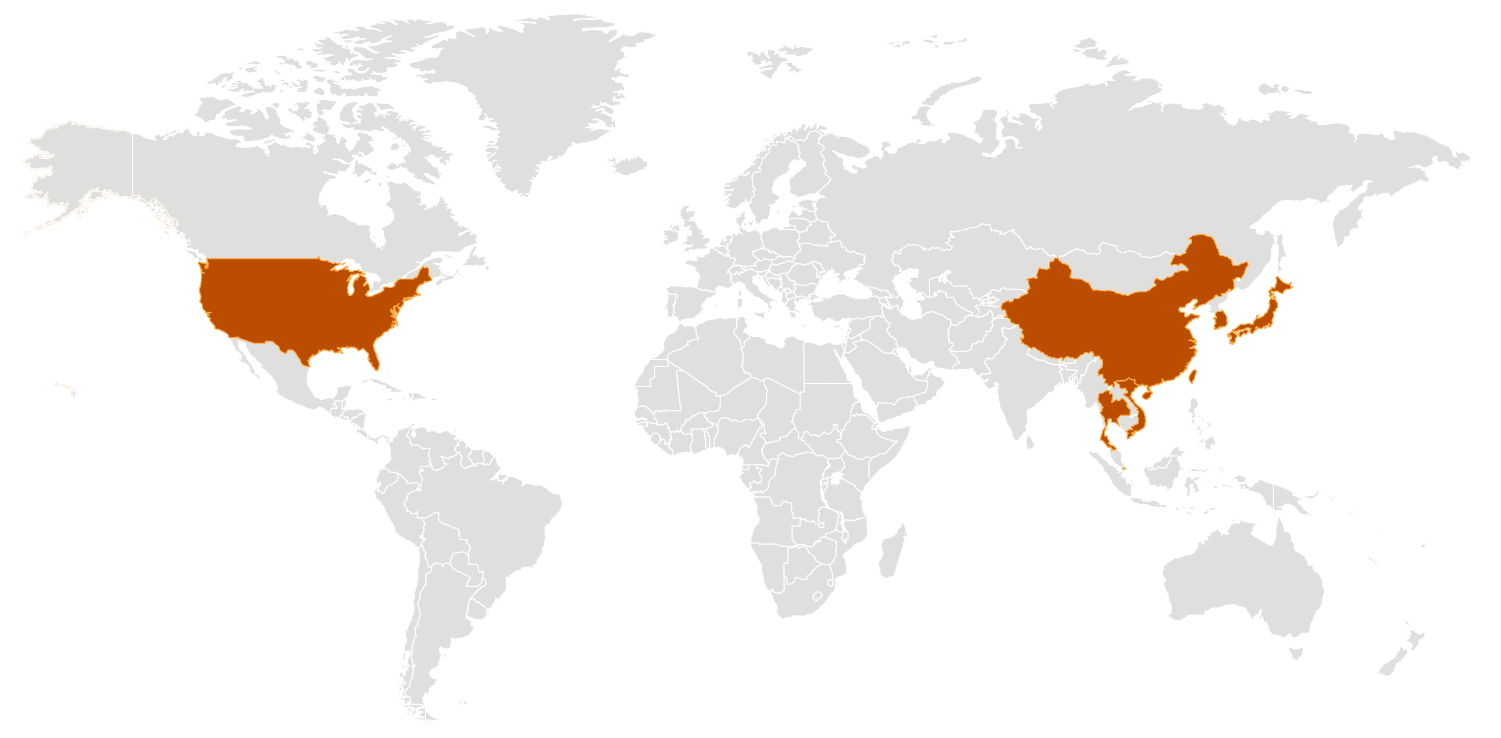At least 26 of the greater than 900 people who have been infected with what is known as the 2019 Novel Coronavirus have died; and the Centers for Disease Control and Prevention has confirmed that the second known infection in the United States has been detected in Illinois — which leads to the question: should you be concerned about coronavirus?
Should You Be Concerned About Coronavirus?
The 2019 Novel Coronavirus was first identified in Wuhan, which is located in the Hubei Province of China. In addition to confirmed cases of this strain of coronavirus in Japan, France, Thailand, Vietnam, Singapore, and the republic of Korea, the first confirmed case which was detected in the United States was officially announced on Tuesday, January 21, 2020 and has led to at least five airports in the United States which have been actively publicly screening incoming travelers from Wuhan — including New York, San Francisco, Los Angeles, Atlanta, and Chicago. Investigations to learn more about 2019 Novel Coronavirus are ongoing in this rapidly evolving situation.
https://twitter.com/anthaswft/status/1220770679869624323
“Coronaviruses are a large family of viruses, some causing illness in people and others that circulate among animals, including camels, cats and bats. Rarely, animal coronaviruses can evolve and infect people and then spread between people such as has been seen with MERS and SARS. Past MERS and SARS outbreaks have been complex, requiring comprehensive public health responses”, according to this summary from the Centers for Disease Control and Prevention. “When person-to-person spread has occurred with MERS and SARS, it is thought to have happened via respiratory droplets produced when an infected person coughs or sneezes, similar to how influenza and other respiratory pathogens spread. Spread of MERS and SARS between people has generally occurred between close contacts. Past MERS and SARS outbreaks have been complex, requiring comprehensive public health responses.”
Several known coronaviruses infect people and usually only cause mild respiratory disease, such as the common cold — but officials at both the Centers for Disease Control and Prevention and the World Health Organization are concerned about this latest outbreak.
The summary continues with how early on, “many of the patients in the outbreak in Wuhan, China reportedly had some link to a large seafood and animal market, suggesting animal-to-person spread. However, a growing number of patients reportedly have not had exposure to animal markets, suggesting person-to-person spread is occurring. At this time, it’s unclear how easily or sustainably this virus is spreading between people.”
The current level officially advised by the Centers for Disease Control and Prevention is to practice usual precautions, which at Level 1 is the lowest level:
Warning — Level 3, Avoid Nonessential Travel
Alert — Level 2, Practice Enhanced Precautions
Watch — Level 1, Practice Usual Precautions
What Should You Do?
First and foremost — as with the prevention of being infected by other germs and viruses — wash your hands thoroughly and often with soap and water for at least 20 seconds. Use an alcohol-based hand sanitizer only if soap and water are not available.
If you:
- Plan on traveling to Wuhan, you should:
- Avoid contact with sick people — especially those who have a fever or are coughing.
- Avoid handling live or dead animals, animal markets, and products which come from animals — such as uncooked meat. Avoid direct unprotected contact with live animals and surfaces in contact with animals.
- Avoid the consumption of raw or undercooked animal products. Raw meat, milk or animal organs should be handled with care, to avoid cross-contamination with uncooked foods, as per good food safety practices
- Older travelers and those with underlying health issues may be at risk for more severe disease and should discuss travel to Wuhan with their healthcare provider.
- Already traveled to Wuhan and feel sick with fever, cough, or difficulty breathing, you should:
- Seek medical care immediately. Before you go to a doctor’s office, emergency room, or other health care provider, call ahead and share with them your recent travel, your previous travel history, and your symptoms.
- Avoid contact with others.
- Not travel while sick.
- Cover your mouth and nose with a tissue or your sleeve — not with your hands — when coughing or sneezing; and immediately dispose of the tissue and wash your hands thoroughly.
Summary
Although the media has been constantly ensuring public awareness of the potential outbreak of the 2019 Novel Coronavirus, I believe that the way the public is being informed is being blown out of proportion to the point of sensationalism and — in some cases — fear mongering.
NEW: Disney Shanghai closed. Forbidden City shut. Part of Great Wall off limits. All 70,000 cinemas dark. 35 million people on lockdown in 13 cities. 830 infected with #coronavirus and 26 dead. This is China on the eve of Chinese New Year 2020. @CBSNews is here. @CBSThisMorning pic.twitter.com/B7rpLSU8YO
— Ramy Inocencio 英若明 (@RamyInocencio) January 24, 2020
Do not panic. If you are concerned about the possibility of being infected with the 2019 Novel Coronavirus, all you need to do is take the aforementioned simple precautions to reduce — or even eliminate — your risk of contracting the virus as you would with other germs and viruses.
Because I wash my hands thoroughly and often, I am not at all afraid or worried about being infected with the 2019 Novel Coronavirus.
For further information and details on the 2019 Novel Coronavirus, please refer to the following articles:
- Novel Coronavirus in China
- Situation Summary
- Second Travel-related Case of 2019 Novel Coronavirus Detected in United States
- Novel Coronavirus (2019-nCoV)
- Novel Coronavirus (2019-nCoV) advice for the public
- Prevention and Treatment
- CDC Travelers’ Health: Novel Coronavirus in China
- CDC Health Alert Network Advisory Update and Interim Guidance on Outbreak of 2019 Novel Coronavirus (2019-nCoV) in Wuhan, China
- CDC Health Alert Network Advisory information for state and local health departments and health care providers
- CDC Information on Coronaviruses
- World Health Organization, Coronavirus

